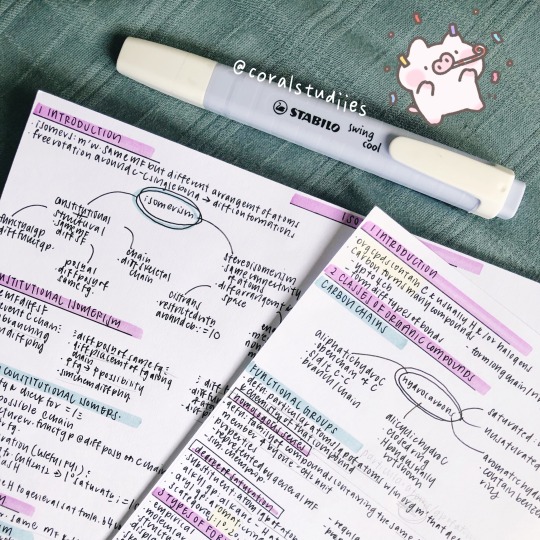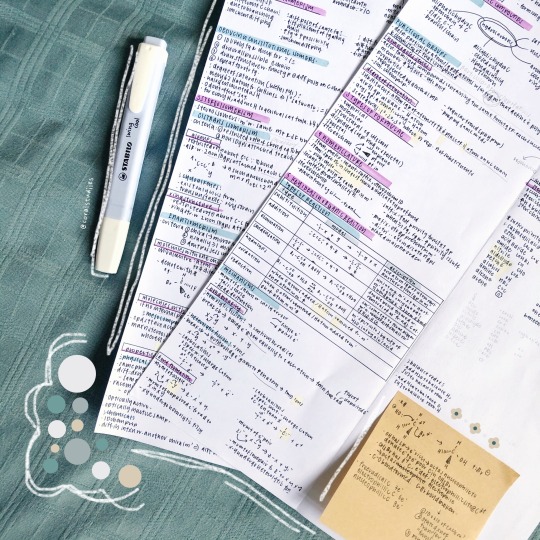Text

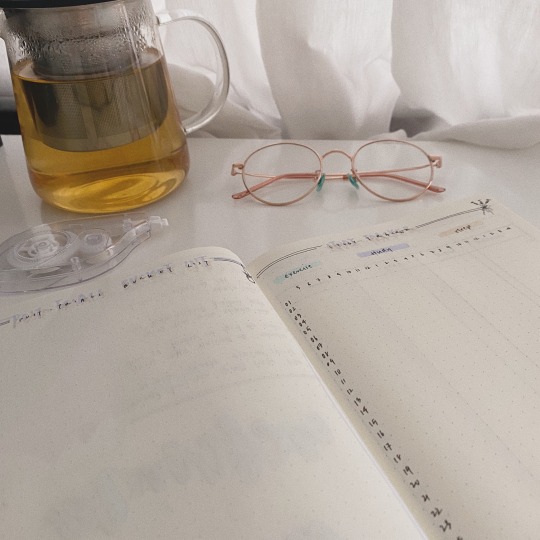
03/08/2020
queuing my own content feels a lil weird, but i'm writing this a few days ahead- i start exams today! (august third) and it's kinda crazy to think this is the last exam block i'll experience before i graduate, absolutely wild
🎧 exile, taylor swift n bon iver
640 notes
·
View notes
Photo


51/100
Well last night I did what everyone should absolutely not do in the middle of mock exams and got as drunk as physically possible. Good thing I only have one exam today.
2K notes
·
View notes
Text
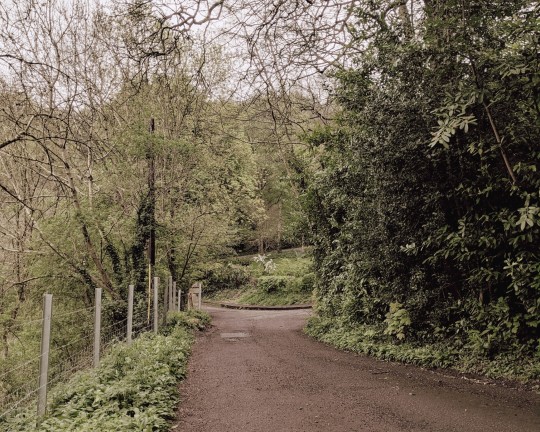

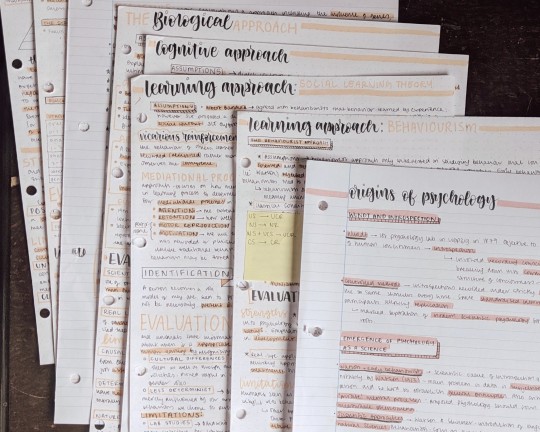

19/100 days of productivity (5/5/2020)
some pics from my walk and psych stuff. a nice long walk cleared my head today- i'm so glad i live on a hill so i can get amazing views with minimal effort ☺️
2K notes
·
View notes
Photo


19.01.18 My coursework deadline is looming too close for comfort, so I don’t know why I am not more stressed than this. I have a new mug! It has sleeping cats on it and it holds so much coffee its amazing. xxx emily
3K notes
·
View notes
Photo
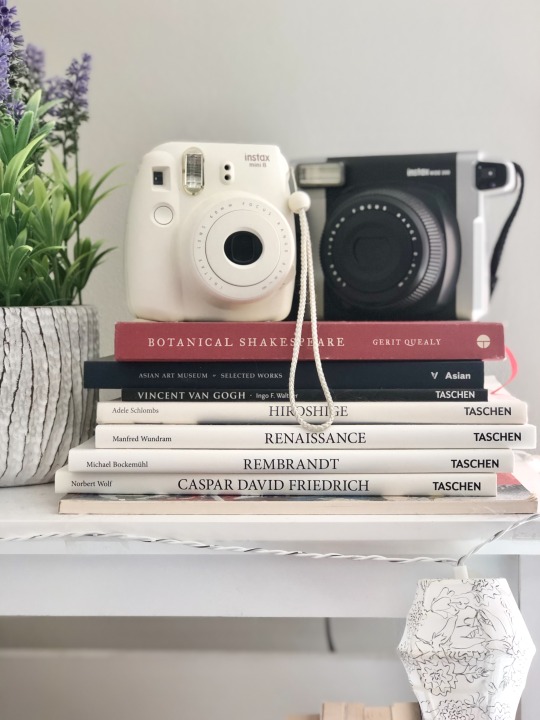

30.07.20 / i don’t know why but first thing this morning i endeavored to dust the top of my bookshelf where I keep my art books. i often wonder what my shelves say about me and what impression it would give off to strangers. anyway, after that, i went straight to paint because i felt inspired. sending you good vibes. hope your day turns out a lot better than you planned. stay safe ♡
2K notes
·
View notes
Text
Academic writing advice inspired by Umberto Eco’s ‘How to Write a Thesis’:
Planning
Determine primary sources/bibliography.
Determine secondary sources/bibliography.
Find title.
Brainstorm a table of contents with as much detail as possible (with chapters, sections and even paragraphs and sub-paragraphs - see How to Write a Thesis’ own table of contents as an example at the end of this document) (if the first drafted table of contents is good enough, it will not be necessary to start the writing from the beginning).
Do a first draft of the introduction.
Note-taking and research
Use Google Scholar to make sure you do not miss important sources.
Keep the table of contents in mind when researching and take notes of which sources could go where.
While note-taking, differentiate which parts could be used as quotations from the ones that are simply important for the argument.
Eco underlines the importance of what he calls reading sheets, which can be understood as your notes on your readings. According to him, these should contain:
information about the author if he is not a well-known figure;
a brief (or long) summary;
they should mostly consist of quotations (accompanied by all the corresponding page numbers)
any commentaries you might want to add;
an indication of which part (or parts) of your table of contents the information mentioned belongs to.
Keep reading sheets on primary sources (which should be the longest) separate from those on secondary sources (which should only be 1-2 pages long).
In the end, re-read the notes and color-code all the different parts according to where they would fit in your table of contents.
Writing and editing
A good place to start would be by redrafting the introduction.
Define every key/technical term used/mentioned unless indisputably obvious.
General writing tips:
keep sentences short;
do not be afraid to repeat the subject twice (ex: Roberta went to the shop (…) Roberta bought carrots and tomatoes);
avoid excessive details;
avoid subordinate clauses (orações subordinadas);
avoid vague language;
avoid unnecessary adjectives;
avoid the passive voice.
While drafting, write everything that comes to mind. Leave the editing for the end.
Use your tutor as a Guinea pig. Make them read your first chapters (and, progressively, all the rest) well before delivery is due.
Ask for as much feedback as possible. Ask colleagues, friends and/or family to read your work. They will provide you with more diversified feedback, as well as allowing you to know if your writing is clear to anyone.
Stop playing ‘solitary genius’.
Don’t insist on starting with the first chapter. Start with what you know best and feel more comfortable writing about, then fill in the gaps.
Leave time for editing and try to take at least a one or two days long break in between writing and editing.
Do not forget to fill in the gaps. When you revisit your writing, go through it with all these writing tips in mind as well as a conscience of what your most common mistakes are.
Use Hemingway in the final editing phase.
Quotations and footnotes
Since there are two kinds of sources (primary and secondary), there are also two kinds of quotations: either we quote a text which we will interpret, or we quote a text which supports your interpretation.
Some quotation rules to know:
“Quote the object of your interpretive analysis with reasonable abundance.”
“Quote the critical literature only when its authority corroborates or confirms your statements. (…) when quoting or citing critical [aka secondary] literature, be sure that it says something new, or that it confirms authoritatively what you have said.”
“If you don’t want readers to presume that you share the opinion of the quoted author, you must include your own critical remarks before or after the passage.”
“Make sure that the author and the source of your quote are clearly identifiable.”
“When a quote does not exceed two or three lines, you can insert it into the body of the text enclosed in quotation marks. (…) When the quote is longer, it is better to set it off as a block quotation. In this case the quotation marks are not necessary, because it is clear that all set-off passages are quotes, and we must commit to a different system for our observations. (Any secondary developments [like the quote’s reference] should appear in a note.) (…) This method is quite convenient because it immediately reveals the quoted texts; it allows the reader to skip them if he is skimming, to linger if he is more interested in the quoted texts than in our commentary, and finally, to find them immediately when need be.”
Some footnote rules to know:
“Use notes to add additional supporting bibliographical references on a topic you discuss in the text. For example, ‘on this topic see also so-and-so.’”
“Use notes to introduce a supporting quote that would have interrupted the text. If you make a statement in the text and then continue directly to the next statement for fluidity, a superscript note reference after the first statement can refer the reader to a note in which a well-known authority backs up your assertion.”
“Use notes to expand on statements you have made in the text. Use notes to free your text from observations that, however important, are peripheral to your argument or do nothing more than repeat from a different point of view what you have essentially already said.”
“Use notes to correct statements in the text. You may be sure of your statements, but you should also be conscious that someone may disagree, or you may believe that, from a certain point of view, it would be possible to object to your statement. Inserting a partially restrictive note will then prove not only your academic honesty but also your critical spirit.”
“Use notes to provide a translation of a quote, or to provide the quote in the original language.”
10K notes
·
View notes
Text
reblog for a perfect second semester
the universe knows you will learn from your first semester mistakes
second semester is when we all get 4.0s
we got this.
reblog to help a friend
14K notes
·
View notes
Text
College tips from an average student
Background: I am fresh graduate with a degree in Accounting. I’m obviously not an A+ student, I’ve experienced failures and I have a short attention span. Here’s how I survived college (even if I got delayed)
How to stay motivated?
- Acknowledge that you cannot always be motivated. Inspirational quotes and simple cheers from you family and friends could help. But I tell you, it doesn’t work all the time.
-Motivation helps you to start studying but the true secret to keep going is DISCIPLINE.
-By developing a routine and strictly following it is a good start to build discipline. I won’t give a specific tip for this since everyone has a different life. You need to figure out this yourself.
For an example:
Majority of the classes I used to have were scheduled in the afternoon, so what I do is that I wake up very early (4-5AM). I eat my breakfast, do minor chores then off to study what I needed to for that day. How do I do it? I read and analyze the concept first. Then, if there’s some problems needed to solve, I try to do it (if I can) Whatever works for me may not work for you. Some people would say their best time to study is in the evening.
How to study when you can’t? (due to personal circumstances)
-There are a lot of factors for this one. It’s probably you have a part-time job, or you have other responsibilities like taking care of a family member, etc.
-The first thing you need to do when you can’t study (or you feel there are a lot of constraint to study) is to ACCEPT THE SITUATION WHERE YOU ARE RIGHT NOW.
-The next thing you need to do is to think of a game plan. For an example, your whole morning to afternoon is occupied for other important things, you should make time in the evening to study.
-Since you have limited time to study, absorb everything you can in class so you can thoroughly focus on topics you don’t know (or those with difficulty) on your free time.
How to study a topic that you don’t like
-Make notes for it, make it pretty and colorful to boost motivation.
-Understand the concept thoroughly. You know you have understand the concept if you can explain it to another person.
-Do concept mapping; whatever it is that will help you: your own formula derived from what is given from the book, making charts, graphs, tables, etc. Story telling the topic helps too.
How to deal with professors
-Treat them the way you want them to treat you.
-They are usually older than you so give them respect.
-Try not to argue with your professors, but if you feel violated tell the higher authority.
-Ask questions if you need to since it’s their job to answer you.
How to deal with classmates
-Distinguish the people who are true to you and those who are fake (who are just using you)
-Remember that college is temporary and majority of the people you’ll meet there are not for long-term.
-Group works are pain in the a** but yeah, don’t be that a**hole group mate.
-Even if friendships are temporary in college, you should engage communications with your colleagues since you need each other to go throughout college.
How to save money in college
-Learn to say no when a friend asks you out to hang out (but don’t do it too often, you might lose friends)
-Get a part-time job if you can
-Bring your own snacks and lunch
-Bring your own water bottle.
-Maximize your resources. Always check first if you really need to buy a specific thing before actually purchasing it.
How to spend your time productively while commuting
-I like to divide my productivity into two parts: For studying and for leisure. Sometimes I study while commuting; I read e-books, power point presentations, PDFs or even watch Youtube videos that are relative to the topics I need to learn.
-Sometimes I do the things I want for leisure during the commute so that when I get home, I won’t be too burnout to study. I listen to music, watch random videos, checking out Tumblr, and whatever floats your boat.
Other tips:
-Don’t drink too much coffee. PLEASE! (Alternatives; but take it in moderation: hot chocolate, milk tea (it works too, but caution: too much sugar), candy, apple)
-Don’t drink energy drinks if your body is not used to it.
-Try to be-friend people from the Accounting department (or whoever processes promissory notes) just in case you can’t pay your tuition on time, they can help you with your promissory note.
-It’s okay to switch classes (if you can) especially if the professor is not that good.
-If the professor allows you to record the lecture, then do it. You can listen to it while commuting or re-writing your notes. (this will help you remember the lessons more)
-BE RESOURCEFUL. The internet is your friend.
I hope these tips will help you. I know it’s not enough but nevertheless, I want to tell you that you can do it! You’ll survive college, don’t worry!
2K notes
·
View notes
Text


16/10/2019
My plans for today include:
- finishing this week's problem sheets
- going to the gym
- completing one of my job applications
3K notes
·
View notes
Text
it won’t be like what you imagined. maybe you get the road trip to the beach with coffee in your hand and the radio playing, maybe you don’t. but happy shows up. it’s in a 2 AM game of jenga with your new college friends. it’s curling up for another marathon of netflix. it’s meeting the person who will be your best man at the wedding. it’s 4:45pm in the library when the girl in the study coral across from you quietly whispers “i’m going to set everything on fire” and then turns to you and asks if you wanna take a break for dinner (say yes, she’s very nice and you both need a moment away from the stress). it’s the mornings they have omelettes and in good books and in a puddle that looks cool. it’s sometimes picturesque, but more often it’s full-belly laughter at stupid things on the floor of your friend’s house while in the background someone is debating the best way to win settlers of catan.
i know it gets dark early now and the tired is setting in and everything sort of feels blank and hazy and you want to spend ages staring at walls thinking of nothing
but happiness will find a way in. it will be small moments. look for them.
311K notes
·
View notes
Text
Friendly reminder to check you’re not holding tension in your body. Let your shoulders drop, unclench your hands and jaw. Take a deep breath. Much better.
315K notes
·
View notes
Text
🌷・゜ ♡ ・ 。 🌻・゜ ♡ 🌿・゜ ♡ 🌺。 🌼・゜ ♡ ♡ 。・゜ ♡ . .♡ ・ 。 🌸・゜ ♡
You are flourishing
。・゜ ♡ ・ 。 🌻・゜ ♡ 🌷・゜ ♡ ・ 🌸 。・゜ ♡ ♡ 。・゜ ♡ . .💐 ♡ 🌿・゜ 🌹・゜ ♡ ・ 。
7K notes
·
View notes
